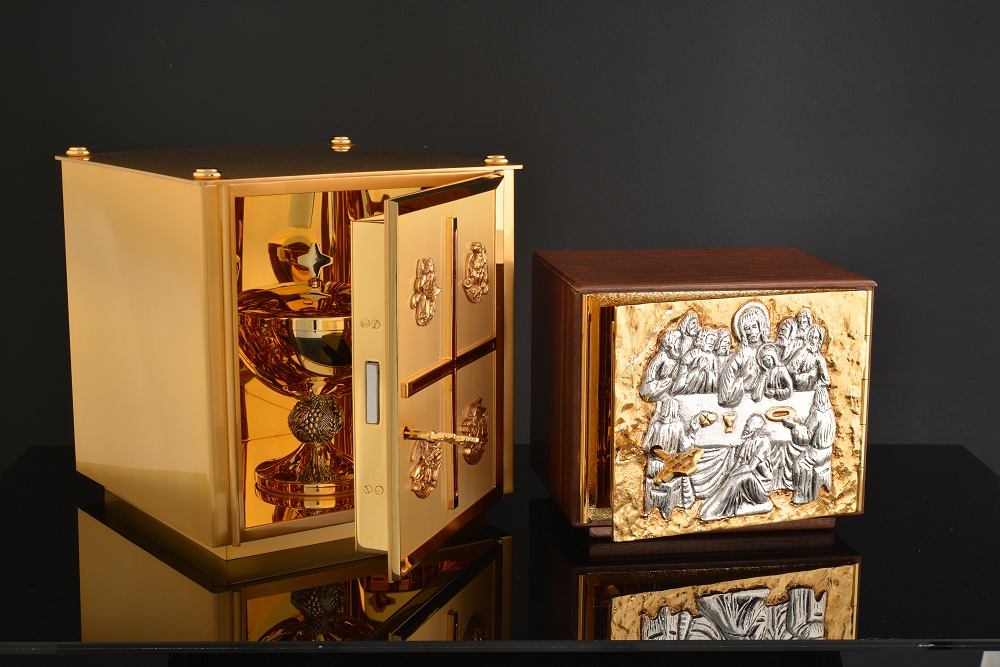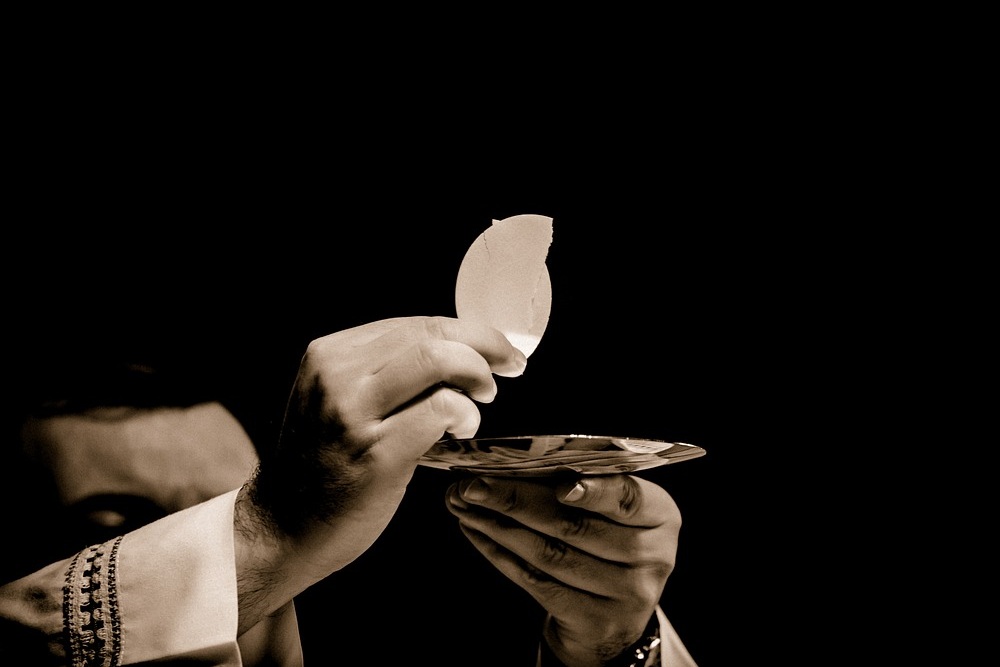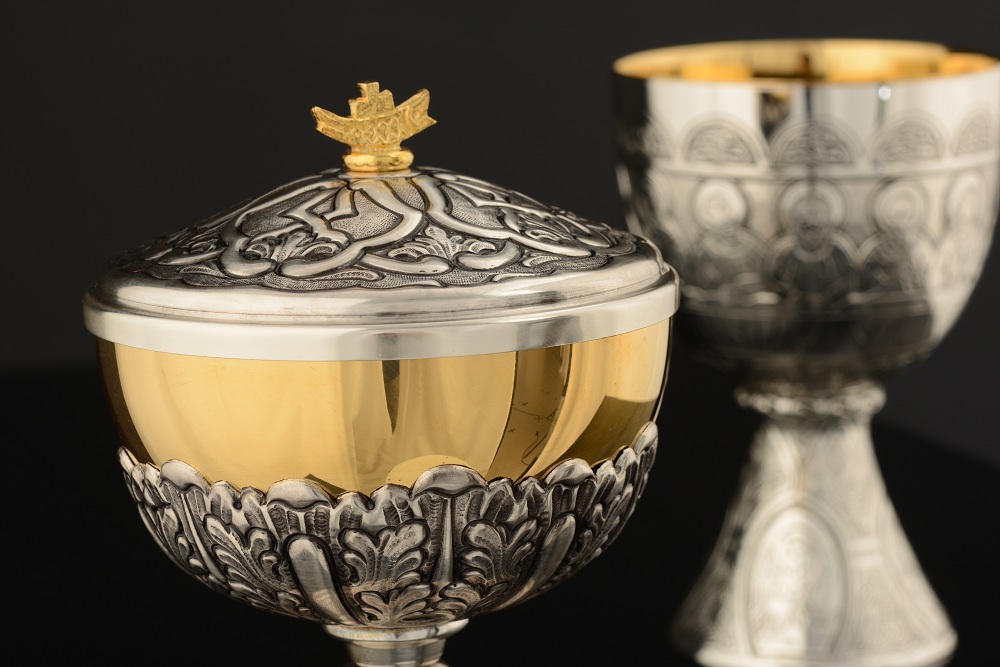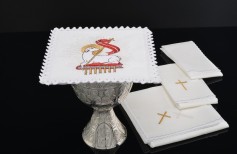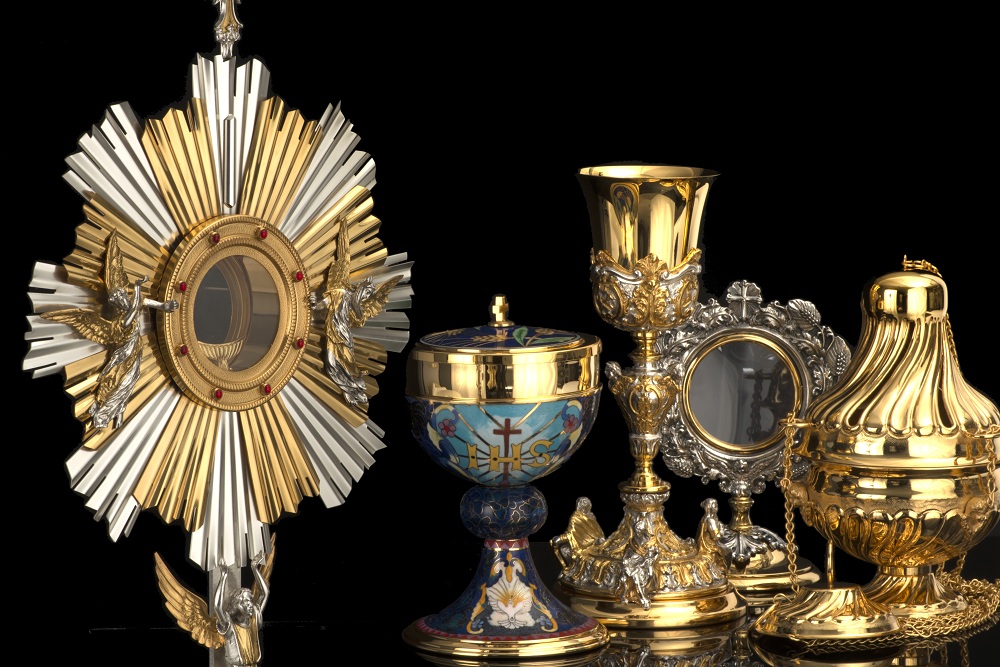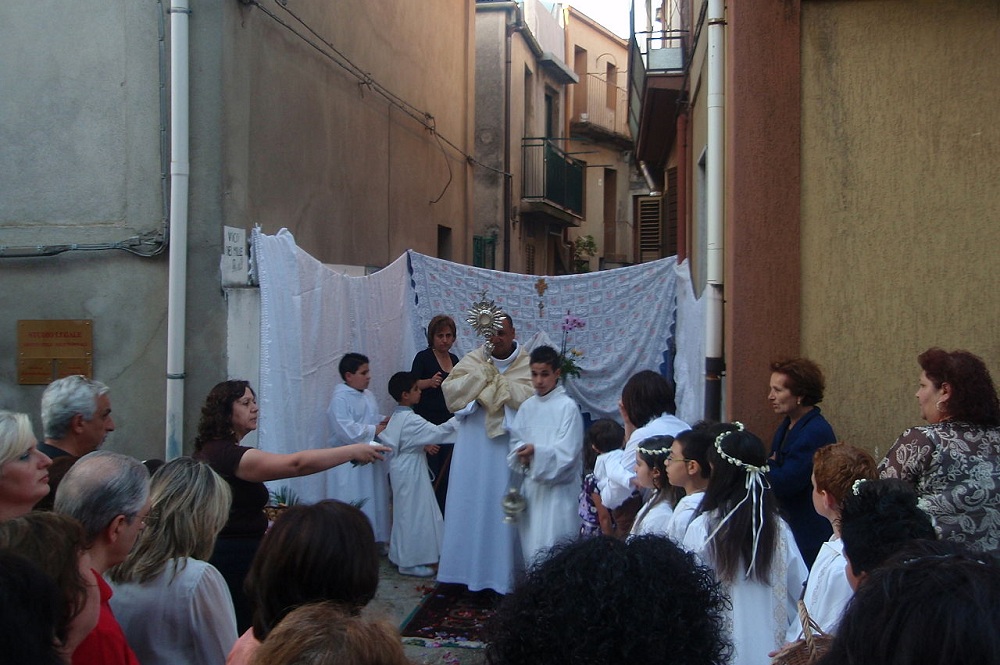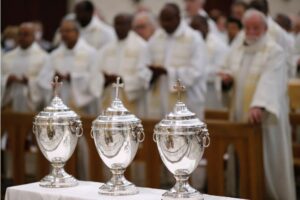The tabernacle is the place of the church that holds the ciborium containing the Eucharist.
This makes the tabernacle the heart and the cornerstone of each church; it is the reference of those who come to pray and worship the body of Christ even outside of celebrations.
The term comes from the Latin tabernaculum, a diminutive of taberna. Its meaning is therefore ‘abode’, the house of God by men. This justifies the centrality that has been given to the shrine over the centuries.
It not only wanted to invoke the presence of God, but to also show how he was near, under the eyes of the faithful, alongside their daily lives. The Altar tabernacle stems from the early Christian tradition of guarding the blessed bread in their homes, to be able to worship at all times, to make it a constant presence in everyday life.
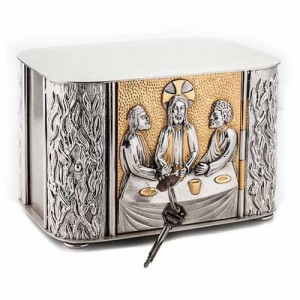
In the past, it was located at the very center of the presbytery, above the altar, or at least in a central location where the faithful could always see it. In more recent times, it seems to have lost this prominent position: it is often located on a bollard a little out of sight, or even outside of the presbytery, in a chapel or side altar.
Nevertheless, you should not be fooled about the true value contained within the tabernacle for the faithful on a symbolic level. Although distancing the tabernacle from the altar may seem on the one hand a weakening of the symbolic expression of the Mystery of the Sacrifice, in fact enables the faithful to find, in the most intimate and private contemplation of the tabernacle, a deeper and more collected inner journey.
The choice of the tabernacle’s location from the table thus does not affect its value. It remains a subject of major importance to the adoration of the faithful and in every church the symbol of the presence of God and the renewal of his sacrifice of love.

